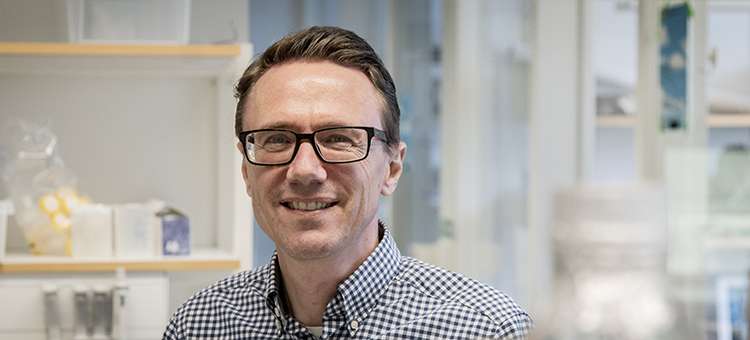Better cell factories for the drugs of the future

Pharmaceuticals based on proteins are promising candidates for the treatment of cancer and other severe diseases, but they can be hard to produce. In a new research project, Chalmers researchers will develop new genetically modified cells, so-called cell factories, which can produce the desired proteins.
The market for pharmaceutical drugs that based on human proteins (protein drugs), is continuously increasing.
"Protein drugs give a more targeted effect and less side effects than traditional drugs based on small molecules," explains Jens Nielsen, Professor of Systems Biology at Chalmers.
The hope is that you will be able to treat a very wide range of diseases, for example different types of cancer, diabetes or multiple sclerosis. The proteins are produced by the so-called cell factories - cells that are genetically modified to produce and secrete the desired protein. The problem is that it is difficult at present to produce some of these proteins.
"For some proteins it is straightforward to produce them, but with others it does not work at all. And we do not really know why, "says Jens Nielsen.
Now, the research groups of Jens Nielsen and Associate Professor Dina Petranovic, (Chalmers), with researchers at KTH, received a grant of SEK 34 million from the Foundation for Strategic Research to investigate protein production by a human cell line and by yeast cell factories, which the group has very much experience with.
"We want to understand why it doesn't' work sometimes, so we can then modify the cell factories to produce more different types of protein," says Jens Nielsen.
Cell factories based on human cell lines are not yet commercially available. Today, most of pharmaceutical proteins are produced primarily by Chinese Ovary Hamster (CHO) cell lines. Pharmaceutical proteins produced in non-human cell lines can be identical to human proteins, or have very small differences which in some patients, the difference may give rise to a response from the immune system.
"With cell factories based on human cells, we aim to get completely identical proteins which would not induce such reactions," says Jens Nielsen.
The long-term vision is that with cell factories it will be possible to produce all the desired proteins so that the needed protein pharmaceuticals come more quickly onto the market.
Provided by Chalmers University of Technology




















